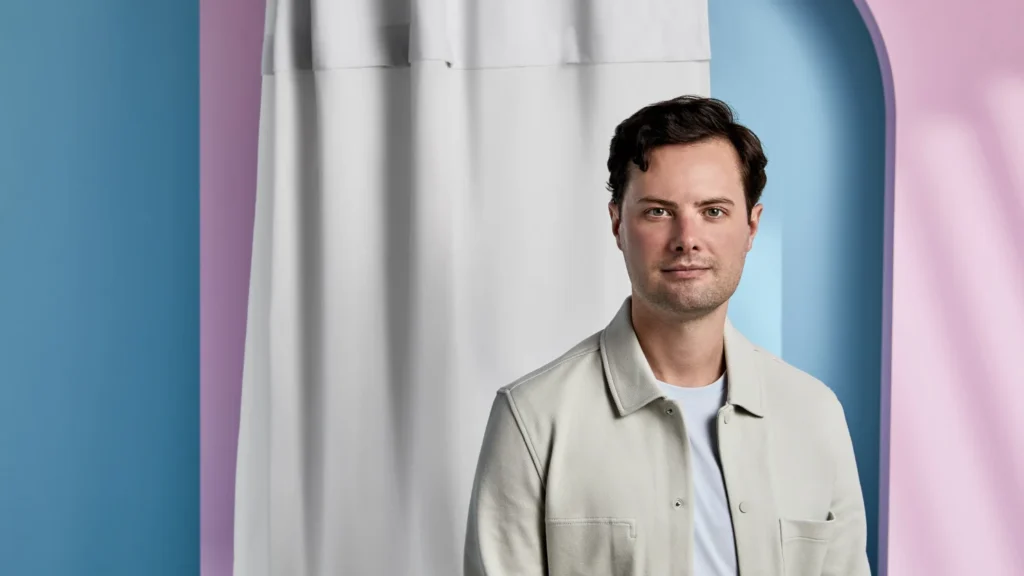At the end of April, New York-based startup Outlines joined the chorus of U.S. businesses raising prices to offset costs of tariffs on incoming Chinese goods.
But on May 14, when President Donald Trump temporarily adjusted the tariff rate to 30% — down from a peak of 145% — Outlines CEO Luke Barkley Young decided to do something relatively unusual, compared to many other American businesses. He lowered his prices back down.
“I remember the Covid days when companies pulled prices up, then just kept them up,” says Barkley Young, 37, whose company sells recyclable plastic shower liners. “I didn’t want to be that business.”
Since Trump’s initial tariffs announcement on April 2, most businesses in the New York and northern New Jersey region have raised their prices, according to a New York Fed survey released on June 4. Even before the tariffs, Barkley Young’s products were a lot more expensive than most plastic shower liners that end up in the trash: $60 for an initial purchase and $28 for “refills,” which covered the cost of the company recycling each liner and sending out a replacement.
Trump’s tariffs made them even pricier. After comparing notes with other startup founders over dinner one night, Barkley Young started calculating, and realized he needed to increase prices on liner refills by $4 each, he says. If he ordered three months’ worth of inventory without raising prices, Outlines would go bankrupt, he adds.
Charging $32 per liner could alienate customers, particularly in an uncertain economic climate, but at least he’d have a chance of retaining enough business to stay open.
Barkley Young notified his customers the day before he raised prices, calling it a “tariff surcharge.” Outlines got a bump in sales over the ensuing 48 hours, according to documents Some customers even bought extra refills to support the business, Barkley Young says — perhaps a benefit of selling to a customer base already comfortable paying extra for an eco-friendly product.
“I’ve received nearly 2,000 emails from customers now, who are just purely wishing us well,” says Barkley Young. “In the past four weeks, I went from probably one of the scariest moments [thinking] these tariffs could bankrupt us, to seeing in like, qualitative form, to seeing all of these emails … and seeing people swipe their credit cards to support this business.”
Then, sales dipped below Outlines’ monthly average of $45,000, documents show — until Barkley Young notified his customers he was adjusting his prices again. Each Outlines liner refill now costs $29, including the $1 surcharge, and the company’s sales perked back up again after the price change.
‘The No. 1 goal of any startup is to survive’
One of Trump’s stated tariff goals is to bring American companies’ manufacturing back to the U.S. But like some other small-business owners, Barkley Young says he’s yet to find an American factory that can produce high-quality products for his startup at cost-effective prices.
When the native Londoner co-launched Outlines from his New York apartment in 2020, the only American producer of recyclable shower-liner material he could find was a Texas-based body bag company that charged him double his Chinese manufacturers’ rate, he says.
Before raising prices in April, Barkley Young asked his manufacturers to move Outlines’ production to one of their partnering factories in Cambodia or Vietnam. But too many businesses had already done the same, and those factories were booked until 2026, he says.
So Outlines is standing pat for now. And since the current levy could always change overnight, Barkley Young will keep updating prices based on tariff rates, he says.
The situation isn’t ideal, he adds. Outlines is his full-time job, but like many small-business owners, he works on the side to supplement his income — padding his monthly take-home of $4,000 to $6,000 with marketing consulting work, he says.
“Parts of entrepreneurship are supposed to be hard, but a blanket anti-entrepreneurial policy from the federal government isn’t one you’d expect to deal with,” says Barkley Young.
Still, he has no plans to leave or shutter his startup, he says.


